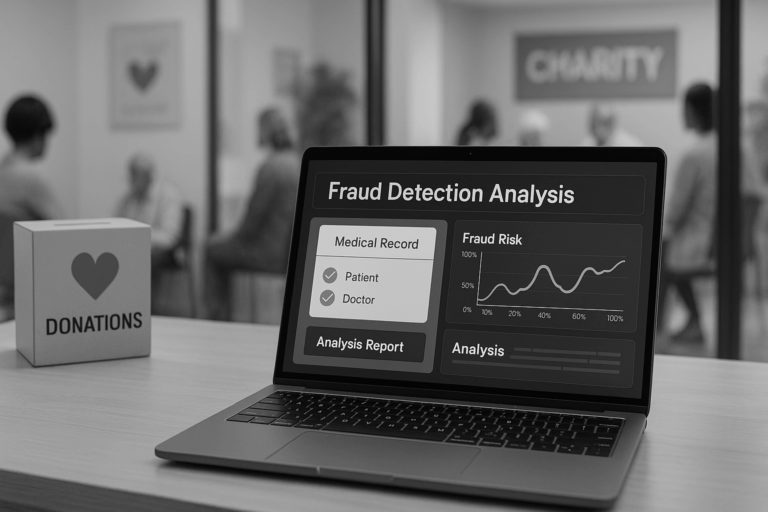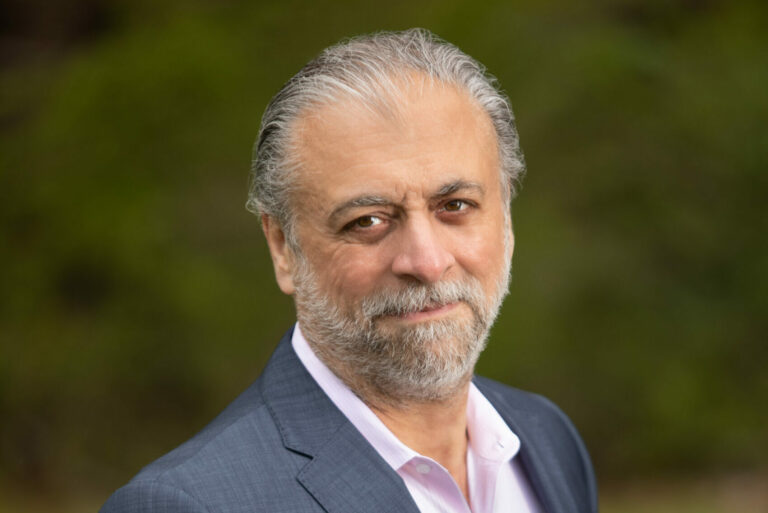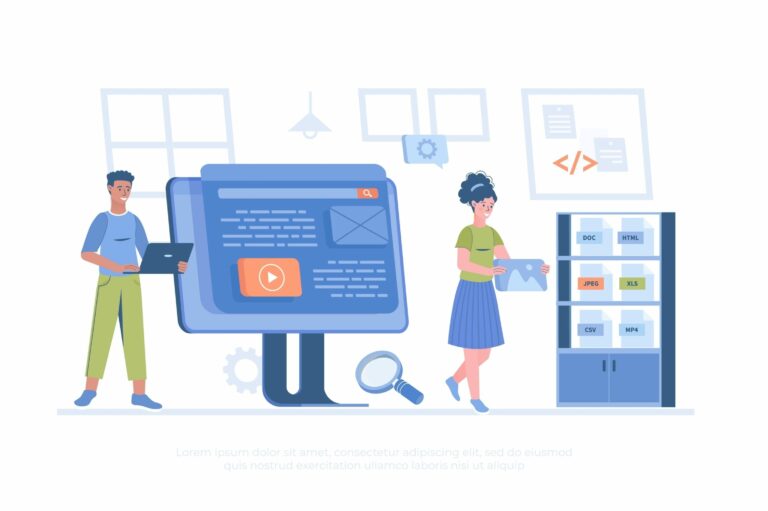
Why you should reevaluate your online security measures today
Cyber threats are rising and outdated habits aren’t enough. Reassess your online security with stronger passwords, two-factor authentication, and better awareness of phishing scams.

Cyber threats are rising and outdated habits aren’t enough. Reassess your online security with stronger passwords, two-factor authentication, and better awareness of phishing scams.

Helpster Charity uses technology to prevent medical fraud, ensuring donations directly support genuine healthcare cases. Their model blends transparency, verification, and impact across Africa and Asia.

In 2024, 716M user records were leaked. Learn how dark web monitoring can help your business detect threats early and protect sensitive data.

As cyber threats evolve, staying safe online in 2025 requires strong passwords, multi-factor authentication, and regular software updates to protect against phishing, malware, and ransomware attacks.

Skipping penetration testing can lead to catastrophic financial, reputational, and operational costs. Investing in prevention is far cheaper and more effective than recovering from a breach.

AI can help alleviate cybersecurity alert fatigue by correlating events, qualifying threats, and reducing stress for analysts, improving well-being and addressing the skills gap in SOCs.

Online multiplayer games can expose personal data to security risks. Learn how to protect yourself by using VPNs, strong passwords, and privacy controls for safer gaming.

With cyber threats constantly evolving, protecting sensitive data is critical for businesses of all sizes. Hiring a Cybersecurity Consultant can

Advancements in technology, such as generative AI and chatbots, have led to more sophisticated cyber threats. As a result, companies are increasing their investments in cybersecurity to protect operations, reputations, and finances.

Zero Trust Network Access (ZTNA) demands constant verification, posing challenges in legacy system adaptation and user experience. Solutions such as MFA and micro-segmentation mitigate risks.

Protecting critical infrastructure requires comprehensive cybersecurity strategies, encompassing threat awareness, employee training, IoT security, emergency protocols, and regular audits to mitigate evolving cyber threats.

As 1.5bn people head to the polls in 2024, Gartner explores the impact of AI on identity verification and calls for proactive measures in the fight against deepfakes.

Constructing a technologically capable and cyber-aware team starts from the top, requiring understanding of security weaknesses and gaps.

Yubico’s John Gilbert on how hardware authentication keys can help protect vulnerable populations, and secure human rights.

CrowdStrike’s Zeki Turedi on the UK government’s cybersecurity strategy.

Citrix’s Gerard Lavin on how to make more sustainable technology choices

Cloudera Fast Forward Labs’ Ade Adewunmi talks about why data rights for children should be at the top of the agenda

W. Curtis Preston, a.k.a “Mr Backup”, on protecting your company’s data against natural disasters

Inderpal Bhandari, Global Chief Data Officer of IBM, outlines the key elements needed for AI to become “trusted”

Aleksandras Šulženko, Product Owner at Oxylabs, writes for Tech For Good

Struggling with cybercrime? M.K. Palmore from Palo Alto Networks highlights the potential of public-private partnerships

Neo4j’s Amy Hodler discusses why graph data analytics is essential to tackle the misappropriation of crisis funds and loans

HSCNI, Microsoft and Kainos on their world-beating response to the COVID-19 challenge.

How East of England Ambulance Service’s digital data lake is being used to save lives.

Steven Lua, CEO of Unitrove, talks about building the world’s first liquid hydrogen bunkering unit

Jan Kleijssen discusses how the Council of Europe is protecting human rights in the digital age.

Half the world lacks essential healthcare. Discover how tech solutions like Helpster’s digital-first model are transforming global health aid and closing life-threatening gaps in access.

Olivier Pin explains why choosing digital tools over paper can help organisations meet business and CSR goals

Gemma McCall is CEO of Culture Shift, which has built a reporting platform to identify and prevent harassment and bullying. In this podcast, Gemma discusses the role of technology and data in overcoming this problem.

Anders Bergtoft is CEO of Charge Amps. In this podcast, Anders charts the EV revolution and discusses the hurdles still to overcome.

Cyber threats are rising and outdated habits aren’t enough. Reassess your online security with stronger passwords, two-factor authentication, and better awareness of phishing scams.

Helpster Charity uses technology to prevent medical fraud, ensuring donations directly support genuine healthcare cases. Their model blends transparency, verification, and impact across Africa and Asia.

In 2024, 716M user records were leaked. Learn how dark web monitoring can help your business detect threats early and protect sensitive data.

As cyber threats evolve, staying safe online in 2025 requires strong passwords, multi-factor authentication, and regular software updates to protect against phishing, malware, and ransomware attacks.

Skipping penetration testing can lead to catastrophic financial, reputational, and operational costs. Investing in prevention is far cheaper and more effective than recovering from a breach.

AI can help alleviate cybersecurity alert fatigue by correlating events, qualifying threats, and reducing stress for analysts, improving well-being and addressing the skills gap in SOCs.

Online multiplayer games can expose personal data to security risks. Learn how to protect yourself by using VPNs, strong passwords, and privacy controls for safer gaming.

With cyber threats constantly evolving, protecting sensitive data is critical for businesses of all sizes. Hiring a Cybersecurity Consultant can

Advancements in technology, such as generative AI and chatbots, have led to more sophisticated cyber threats. As a result, companies are increasing their investments in cybersecurity to protect operations, reputations, and finances.

Zero Trust Network Access (ZTNA) demands constant verification, posing challenges in legacy system adaptation and user experience. Solutions such as MFA and micro-segmentation mitigate risks.

Protecting critical infrastructure requires comprehensive cybersecurity strategies, encompassing threat awareness, employee training, IoT security, emergency protocols, and regular audits to mitigate evolving cyber threats.

As 1.5bn people head to the polls in 2024, Gartner explores the impact of AI on identity verification and calls for proactive measures in the fight against deepfakes.

Constructing a technologically capable and cyber-aware team starts from the top, requiring understanding of security weaknesses and gaps.

Yubico’s John Gilbert on how hardware authentication keys can help protect vulnerable populations, and secure human rights.

CrowdStrike’s Zeki Turedi on the UK government’s cybersecurity strategy.

Citrix’s Gerard Lavin on how to make more sustainable technology choices

Cloudera Fast Forward Labs’ Ade Adewunmi talks about why data rights for children should be at the top of the agenda

W. Curtis Preston, a.k.a “Mr Backup”, on protecting your company’s data against natural disasters

Inderpal Bhandari, Global Chief Data Officer of IBM, outlines the key elements needed for AI to become “trusted”

Aleksandras Šulženko, Product Owner at Oxylabs, writes for Tech For Good

Struggling with cybercrime? M.K. Palmore from Palo Alto Networks highlights the potential of public-private partnerships

Neo4j’s Amy Hodler discusses why graph data analytics is essential to tackle the misappropriation of crisis funds and loans